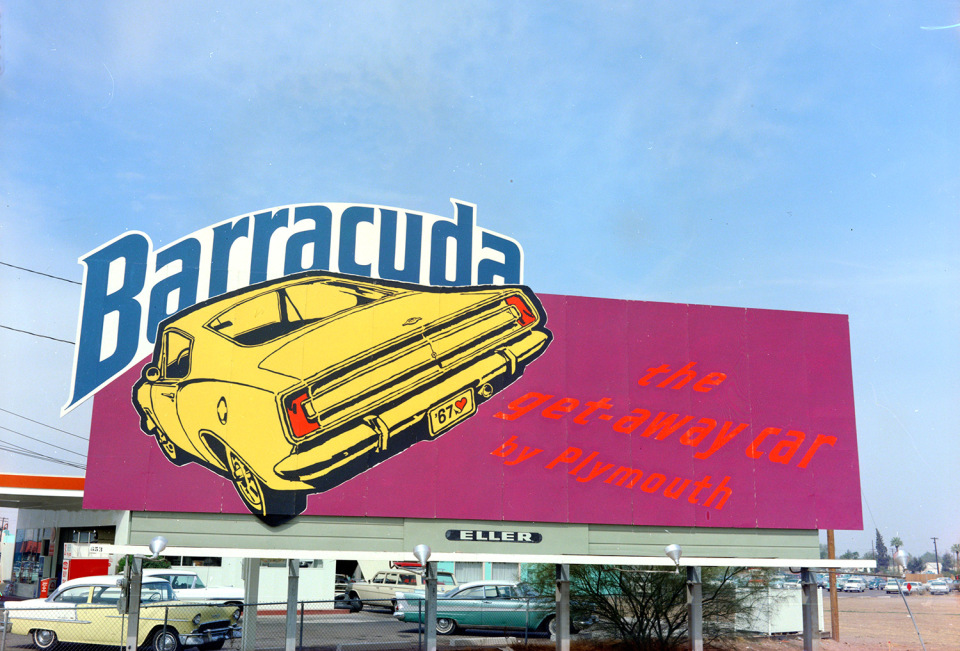【zendaya sex video】
2025-06-26 20:43:52
829 views
2784 comments
Bloodthirsty Billboards,zendaya sex video and Other News
On the Shelf

As integral to the landscape as the horizon is.
- On February 3, 1974, Philip K. Dick was minding his own business—just recovering from dental surgery as you or I might, maybe with a pint of rum raisin Häagen-Dazs and some trashy daytime television—when a divine spirit had the nerve to interrupt his solitude, altering his life forever: “The doorbell rang, and when Dick opened the door he was stunned to see what he described as a ‘girl with black, black hair and large eyes very lovely and intense’ wearing a gold necklace with a Christian fish symbol. She was there to deliver a new batch of medications from the pharmacy. After the door shut, Dick was blinded by a flash of pink light and a series of visions ensued. First came images of abstract paintings, followed by philosophical ideas and then, sophisticated engineering blueprints. Dick believed the pink light was a spiritual force which had unlocked his consciousness, granting him access to esoteric knowledge.”
- Imagine a world without billboards. I can’t do it, either. But an earlier generation, their synapses blessedly unfried by constant advertising, had the creative wherewithal to mount an assault on the whole industry. Erica Berry writes, “Billboards are democratic invitations, tickets to Dionysian adventure and Hedonistic romps … Taking a cue from the English Society for Checking the Abuses of Public Advertising, American anti-billboard reformers quickly organized against this assault, with the renowned landscape architect Frederick Law Olmsted, Jr., helming early efforts. The signs concealed piles of litter, blocked sunlight, distracted from the scenery, and ‘obtrude[d] all sorts of sordid ideas upon the mind,’ Olmsted wrote in 1900. Beyond moral objections, anti-billboard activists seized on the practical effrontery of the signs, as when wooden boards atop San Francisco’s buildings helped conduct the city’s disastrous 1906 fire, or when a ‘bloodthirsty billboard’ tipped and injured pedestrians in Kansas City in 1905, as reported by the Kansas City Journal.”
- Come to Catullus for the hunger and heartache, stay for the dick jokes: “The verses Catullus addressed to male rivals, or to friends who he felt had let him down, often pullulate with rage and obscenity. Paedicabo ego vos et irrumabois his gloriously defiant reply to two companions, Furius and Aurelius, who had criticized the indecency of his writings: ‘I shall fuck you in the ass and I shall fuck you in the mouth.’ His fearless attacks on his enemies, even revered public figures, teem with anuses, penises, stinking armpits—one man, a certain Rufus, is said to have a wild goat living beneath his—and graphic sex acts either given or received. The saltiness of these poems has thrilled many a beginning Latin class, but their power extends beyond mere shock value. With his freewheeling aggression, his willingness to let fly at the slightest provocation, Catullus evokes the modern Beat poets; the ‘neoteric’ school to which he belonged was just as daring as theirs in breaking with literary tradition.”
- Our poetry editor, Robyn Creswell, reviews Hisham Matar’s The Return: Fathers, Sons and the Land in Between, which finds Matar returning to Libya for the first time in thirty-three years, after Qaddafi’s fall: “His memoir is set in this honeymoon of the revolution, the brief window between the dictatorship and the current civil war. ‘Anything seemed possible,’ Matar writes of this hopeful interim, ‘and nearly every individual I met spoke of his optimism and foreboding in the same breath.’ In the memoir’s most rapturous passages, which recall Albert Camus’s essays on his Algerian childhood, Matar evokes his rediscovery of the Libyan landscape, the luminous Mediterranean coast and the austerity of the interior, where the earth ‘stood as all the unpeopled landscapes of Libya stand, clean and witnessing.’ ”
- In which James Wolcott sits down with a group of memoirs looking back at the golden age of magazines, including Terry McDonell’s The Accidental Life: “The twilight melancholy that creeps through the book is due not only to the ghosts of those now gone … but also to the waning of an entire way of life, the shrinking power, prestige, glamour, and advertising clout of glossy print in the Digital Age beneath the Death Star of Silicon Valley hegemony and the loss of journalistic comradeship. Everything McDonell writes rings sad and true, but the marvel is (as I’m sure he’d agree) that so much superb, adventurous work is still being done in magazines in the encroaching void of such adversity. If you’re going to go down with the ship, might as well go down swinging.”
Search
Categories
Latest Posts
Apple is reportedly still working on smart glasses of some kind
2025-06-26 20:20Night at the Museum
2025-06-26 20:02Popular Posts
The 'recession indicator' meme, explained
2025-06-26 20:39Happy Fourth of July from The Paris Review
2025-06-26 19:15Amazon Spring Sale 2025: Best Apple AirPods 4 deal
2025-06-26 18:43Featured Posts
LinkedIn launches ‘Zip,’ a brain
2025-06-26 20:24The Morning News Roundup for July 8, 2014
2025-06-26 19:50Happy Fourth of July from The Paris Review
2025-06-26 19:04Popular Articles
NYT mini crossword answers for May 9, 2025
2025-06-26 19:32The Morning News Roundup for July 7, 2014
2025-06-26 19:04Passional Affinities by Adee Braun
2025-06-26 18:47Philosophy of the World
2025-06-26 18:18Wordle today: The answer and hints for February 22, 2025
2025-06-26 18:09Newsletter
Subscribe to our newsletter for the latest updates.
Comments (679)
Mystery Information Network
44 GPU Fortnite Benchmark: The Best Graphics Cards for Playing Battle Royale
2025-06-26 20:30New Knowledge Information Network
What's new to streaming and theaters this week
2025-06-26 19:42Unimpeded Information Network
A Dream of Toasted Cheese
2025-06-26 19:18Prospect Information Network
Variation on a Theme of Jacques Brel
2025-06-26 19:16Mark Information Network
FreeSync 2 Explained
2025-06-26 19:09